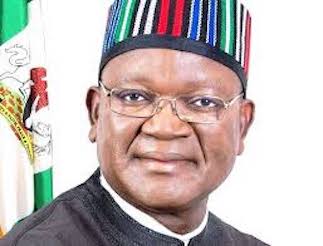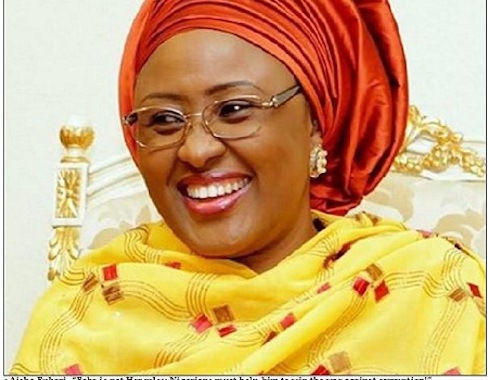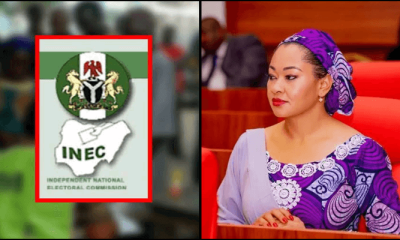COVER
10 Governors Inherit N2.772trn Debts from Predecessors
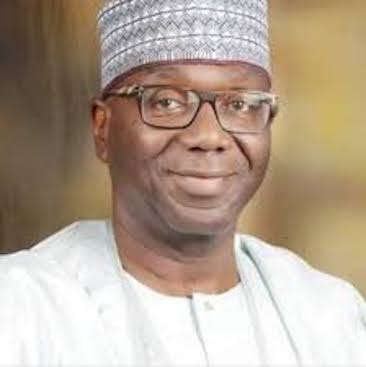
From David Torough (Makurdi), Jude Dangwam (Jos), Dan Amasingha (Minna), Longtong Yakubu (Kano), Christiana Babayo (Jalingo)
No fewer than 10 of the 28 governors, who recently took oath of office, are facing an uphill task to meet their contractual agreement to provide basic amenities to the people of their state, due to the huge debts profile left behind by their predecessors.
Cumulatively, the 10 former state executives left a total debt burden of N2772 trillion and $852, 000 for the incoming governors.Among them are the governors of Benue, Niger, Plateau, Taraba, Kano, Osun, Kaduna, Cross Rivers, Delta and Abia State.
Alia Inherits Over N187bn in Benue
In Benue State, former Governor, Samuel Ortom, left behind over a debt profile of over N187 billion to his successor, Rev.
Fr. Hyacinth Alia.Recall that the now former governor, Ortom had briefed his successor, Alia on May 28, 2023 before the official handover date of May 29.
While presenting the handover note to Alia, Ortom had explained that the total income which accrued to Benue State in the tenure of his administration from all sources, including statutory income, value added tax, internally generated revenue, grants, refunds and loans was seven hundred and thirty-four point nine billion naira (N734.9 bn) as at April 30, 2023.
According to him, the total expenditure on recurrent wages being salaries, pensions, loans services, refund/remittances and the cost of running Government amounted to seven hundred and thirty-five point six billion naira (N735.6bn) as at April 30, 2023.
Ortom said the total indebtedness of Benue State as at the time of handover was one hundred and eighty-seven point five billion naira (N187.5bn) which according to him was inclusive of pensions, salary arrears, loans, bonds and outstanding contractual obligations.
“The total indebtedness of the Benue State Government at this time of the exit of my administration from office is N187.56bn. This is inclusive of salary and pension arrears, loans and bonds as well as outstanding contractual obligations,” he stated.
Ortom however said, his administration had taken proactive steps to ensure debt reduction. The efforts, he said included debt swap between Benue State Government and the federal government.
“The total debt swap for Benue State and local government councils N71.6 billion are the backlog of accumulated stamp duties as well as an expected inflow of N48 billion.
He added that there was a refund from debt swap with the federal government to the tune of N22.9 billion, totaling N70.9 billion.
He said the debt profile was therefore brought down to N45.2 billion.
Plateau Under Huge Debt Profile of Over N200bn
Former Governor of Plateau State, Simon Bako Lalong left a debt profile of over N200 billion behind for his successor, Barrister Caleb Mutfwang.
Mutfwang, who made this known during his inaugural speech held on May 29, 2023 at the Rwang Pam Township Stadium in Jos, said the financial burden, the numerous needs in the healthcare, education sectors, and the infrastructural decayed the state is faced with, is not going to be an easy ride.
“I understand clearly the enormity of the task before me and I have no illusions that it is going to be an easy ride.
“The state is presently under a huge debt burden of over 200 billion naira, the healthcare sector is in need of urgent attention, our school system requires a comprehensive overhaul, our infrastructure is decayed and inadequate, and practically, every sector requires urgent redress,” he said.
He called on citizens of the State to be patient as he address the challenges head-on. “I must mention that there are no quick fix solutions to these challenges, but one thing is certain, we are prepared to take the challenges head-on and we will hit the ground running immediately.”
Niger Gov’t Debt Profile Stands at N126.9bn
The immediate past Governor of Niger State, Alhaji Abubakar Sani Bello left a debt profile of over N126.9 billion to his successor, Hon Mohammed Umar Bago.
DAILY ASSET gathered that the debt figures obtained by the State Debt Management Office may actually be more than the quoted figures.
Findings reveals that, as at September 2022, Niger State external debt stock stood at N 28, 726, 072, 780.86k while the domestic debt profile stands at N98, 262, 195, 557, 88k.
The datas obtained from the Niger State debt management office reveals that the total debt stock of the State stood at N126, 988, 268, 338, 74k by the end of September 2022.
Sources however disclosed to our Correspondent that the debt burden of the State may be more than the official figures as between September last year when the last figures were complied and May 29th when the Abubakar Sani Bello administration exited power it incurred more loans.
It was also discovered that, most of the domestic debt profile is due to the backlog of arrears of pension and gratuity liability of retired State and local government staffs.
The bulk of the external debt was incured as a result of the developmental bonds obtained by the past administration from foreign partners like the Islamic development bank and some multilateral agencies.
Ishaku Leaves N200bn Debts
From Taraba State, the newly sworn-in Governor, Kefas Agbu, has inherited a debt of over N200 billion left behind by the immediate past administration of Arc. Darius Dickson Ishaku.
Apart from Ishaku’s alleged inability to implement the new National minimum wage of N30,000.00, pensioners, and workers all have different forms of woes to narrate.
Besides the government’s inability to pay pensioners their gratuities which has accumulated to several billions of Naira, over 1,000 of the retirees were also reportedly not adequately captured for the past eight years in the state.
State Chairman of the Nigerian Pensioners Union (NUP), Silas Jafta, and its Secretary, Yohanna Ajiya, said, Ishaku’s alleged refusal to attend to the plights of pensioners, the has “sent some of our colleagues to our colleagues to the Great Beyond.”
N241bn in Kano
In Kano State, the immediate past administration of Abdullahi Ganduje left behind a debt profile of N241 billion for the government of Aba Gida Gida.
In his speech, Ganduje said that his administration collected N1. 2 trillion in the last eight years and spent the amount, leaving behind a total of about N241 billion in debt, made up of loans, contractual obligations, and others.
Cross River State
Newly sworn-in Cross Rivers State Governor, Bassey Out has inherited N175,198,799,155.96 and $215,754,975.33 from his predecessor, Prof Ben Ayade.
Delta State
Former Governor, Ifeanyi Okowa left behind a whooping N272,612,510,528.95 total domestic debt and $60,046,972.41 foreign debt for his successor, Sheriff Oborevwori in Delta State.
Other are Oyetola of Osun State, who left a debt burden of N407 billion to his successor; Nasir el-Rufai of Kaduna State, who left behind $577.32m, N64.54 billion debt in the state to the government of Uba Sani; while former Abia State Governor, Okezie Ikpeazu left a N200 billion debt for successor, Alex Otti.
COVER
FG, States, LGCs Share N1.818trn June Revenue
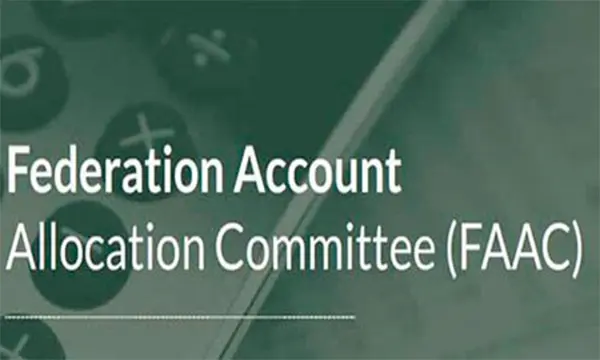
By Tony Obiechina Abuja
A total sum of N1.818 trillion, being June 2025 Federation Account Revenue, has been shared to the Federal Government, States and the Local Government Councils.The revenue was shared at the July 2025 Federation Account Allocation Committee (FAAC) meeting held in Abuja, in a statement by Bawa Mokwa Director of Press and Public relations in the Office of the Account General of the AGF during the weekend.
The N1. 818 trillion total distributable revenue comprised distributable statutory revenue of N1.018 trillion, distributable Value Added Tax (VAT) revenue of N631.507 billion, Electronic Money Transfer Levy (EMTL) revenue of N29.165 billion, Exchange Difference revenue of N38.849 billion and N100 billion Augmentation from Non-Mineral revenue.A communiqué issued by the Federation Account Allocation Committee (FAAC) indicated that total gross revenue of N4.232 trillion was available in the month of June 2025. Total deduction for cost of collection was N162.786 billion while total transfers, interventions, refunds and savings was N2.251 trillion.According to the communiqué, gross statutory revenue of N3.485 trillion was received for the month of June 2025. This was higher than the sum of N2.094 trillion received in the month of May 2025 by N1.390 trillion.Gross revenue of N678.165 billion was available from the Value Added Tax (VAT) in June 2025. This was lower than the N742.820 billion available in the month of May 2025 by N64.655 billion. The communiqué stated that from the N1.818 trillion total distributable revenue, the Federal Government received total sum of N645.383 billion and the State Governments received total sum of N607.417 billion.The Local government Council received N444.853 billion, while the sum of N120.759 billion (13% of mineral revenue) was shared to the benefiting State as derivation revenue.On the N1.018 trllion distributable statutory revenue, the communiqué stated that the Federal Government received N474.455 billion and the State Governments received N240.650 billion.The Local Government Councils received N185.531 billion and the sum of N118.256 billion (13% of mineral revenue) was shared to the benefiting States as derivation revenue.From the N631.507 billion distributable Value Added Tax (VAT) revenue, the Federal Government received N94.726 billion, the State Governments received N315.754 billion and the Local Government Councils received N221.027 billion.A total sum of N4.375 billion was received by the Federal Government from the N29.165 billion Electronic Money Transfer Levy (EMTL). The State Governments received N14.582 billion and the Local Government Councils received N10.208 billion.From the N38.849 billion Exchange Difference revenue, the communiqué stated that the Federal Government received N19.147 billion and the State Governments received N9.712 billion.The Local Government Councils received N7.487 billion, while the sum of N2.503 billion (13% of mineral revenue) was shared to the benefiting States as derivation revenue.The communique stated that the Federal Government received a total sum of N52.680 billion, the State Governments received N26,720 billion and the Local Government Councils received N20.600 billion from the N100 billion Augmentation.In June 2025, Companies Income Tax (CIT), Petroleum Profit Tax(PPT), Electronic Money Transfer Levy(EMTL) increased significantly while Oil and Gas Royalty, Value Added Tax( VAT), Import Duty, Excise Duty and CET Levies decreased considerably.COVER
Senate, Natasha Thread Words over Resumption as Court Ends Suspension

By Eze Okechukwu, Abuja
The Senate has warned suspended Kogi lawmaker, Senator Natasha Akpoti-Uduaghan to desist from forcefully resuming her legislative duties on Tuesday until the expiration of her suspension.Chairman of the Senate Committee on Media and Public Affairs, Senator Yemi Adaramodu gave the warning in a statement issued on Sunday.
While insisting that no valid court order mandates her immediate recall, Adaramodu emphasised that the Senate remains committed to due process and the rule of law. He said, “The Senate of the Federal Republic of Nigeria wishes to reaffirm, for the third time, that there is no subsisting court order mandating the Senate to recall Senator Natasha Akpoti-Uduaghan before the expiration of her suspension.”The clarification followed media reports quoting the embattled lawmaker as saying she would return to the Senate on Tuesday, allegedly based on a judgment by Justice Binta Nyako of the Federal High Court in Abuja.However, Adaramodu said the Senate had previously issued two public statements after the court ruling and the release of the Certified True Copy of the Enrolled Order, making it clear that no positive or mandatory directive was issued against the Senate regarding her recall.“Rather, the Honourable Court gave a non-binding advisory urging the Senate to consider amending its Standing Orders and reviewing the suspension, which it opined might be excessive.“The Court, however, explicitly held that the Senate did not breach any law or constitutional provision in imposing the disciplinary measure based on the Senator’s misconduct during plenary,” he said.The Senate further noted that the same court found Akpoti-Uduaghan guilty of contempt and imposed penalties, including a N5m fine payable to the Federal Government and a mandatory apology in two national newspapers and on her Facebook page, a directive that has reportedly not been complied with.“It is therefore surprising and legally untenable that Senator Akpoti-Uduaghan, while on appeal and having filed a motion for stay against the valid and binding orders made against her, is attempting to act upon an imaginary order of recall that does not exist,” the Senate spokesman added.He warned that any move by the suspended lawmaker to “storm the Senate next Tuesday under a false pretext” would be premature, disruptive, and a breach of legislative order.“The Senate will, at the appropriate time, consider the advisory opinion of the court on both amending the Standing Orders of the Senate, her recall, and communicate the same thereof to Senator Akpoti-Uduaghan.“Until then, she is respectfully advised to stay away from the Senate chambers and allow due process to run its full course,” the statement concluded.I’ll resume on Tuesday – Natasha Akpoti-Uduaghan Dares SenateSuspended Kogi Central Senator, Natasha Akpoti-Uduaghan, has vowed to resume her duties in the Senate on Tuesday.Akpoti-Uduaghan said her resumption was in line with a court decision.She disclosed this in a chat with journalists while in her constituency for a training programme on Saturday.The embattled lawmaker said the suspension limited her from performing her legislative duties.Natasha disclosed that she has officially informed the Senate in writing about her intentions to resume.She noted that despite the controversy surrounding the ruling of the Abuja Federal High Court, she will resume on Tuesday.“I have pretty much two months more before the six months expire. However, I have written to the Senate again telling them that I’m resuming on the 22nd, which is on Tuesday, by the special grace of God.“I will be there, because the court did make the decision on that,” she said.COVER
Dangote Refinery Targets 700,000bpd Capacity

By David Torough, Abuja
The Dangote Petroleum Refinery is undergoing a major capacity upgrade to increase its output from 650,000 to 700,000 barrels per day (bpd), according to Alhaji Aliko Dangote, President of the Dangote Group. The expansion, currently underway at the Lekki Free Zone in Lagos, is expected to be completed by the end of 2025.
Dangote, who spoke during a recent facility tour with stakeholders and journalists, explained that the upgrade is aimed at maximising the refinery’s potential, despite ongoing modifications slowing its ability to operate at full capacity this year. “As of July, our Residue Fluid Catalytic Cracking (RFCC) unit is running at 85 per cent capacity. Once modifications are complete, we expect to exceed the original design and hit 700,000bpd,” he said. The RFCC process converts heavy crude residue into valuable lighter fuels such as gasoline, diesel, and LPG.Dangote disclosed that the refinery sourced 19 million barrels of crude oil from the United States between June and July 2025 alone. “We bought 10 million barrels in July, which accounts for about 55 per cent of our current crude needs,” he said.He also reflected on the journey of building the $20 billion refinery, revealing it began after the late President Umaru Musa Yar’Adua halted his attempt to purchase Nigeria’s state-owned refineries in 2007.“Had I known the complexity and challenges involved, I might never have started. But we pushed through the setbacks, and today we’ve proved that nothing is impossible,” Dangote remarked.He further noted that most African nations are still dependent on imported refined fuels, with the exception of Algeria and Libya. “We needed to change that narrative. Only one refinery is currently operating in South Africa. So, we decided to take the risk,” he added.Dangote criticised what he described as “foreign sabotage through importation,” claiming some external forces use large volumes of imports to undermine domestic industries in Africa.In a related development, Nigeria has secured over $20 billion in new investment commitments from China to support key sectors of the economy, including agriculture, mining, steel, energy, and automotive manufacturing.Director General of the Nigeria-China Strategic Partnership (NCSP), Joseph Tegbe disclosed the breakthrough over the weekend, noting that the funding was the result of sustained bilateral engagements following the elevation of Nigeria-China ties to a Comprehensive Strategic Partnership.“These are real commitments, not just pledges,” Tegbe said. “We’re talking about tangible projects that will create jobs, boost local production, enhance food security, and make Nigeria a leading manufacturing hub in Africa.”Tegbe added that the NCSP is driving efforts to ensure the success of Forum on China-Africa Cooperation (FOCAC) projects in Nigeria, while also leveraging Chinese expertise and financing to reposition the country’s industrial base.The partnership also aims to open Asian markets to Nigerian-made goods, enhancing exports and creating value-added supply chains in line with President Bola Tinubu’s Renewed Hope Agenda.“We’re not only building bridges with investors; we’re delivering results that will transform Nigeria’s economy for generations to come,” Tegbe said.



